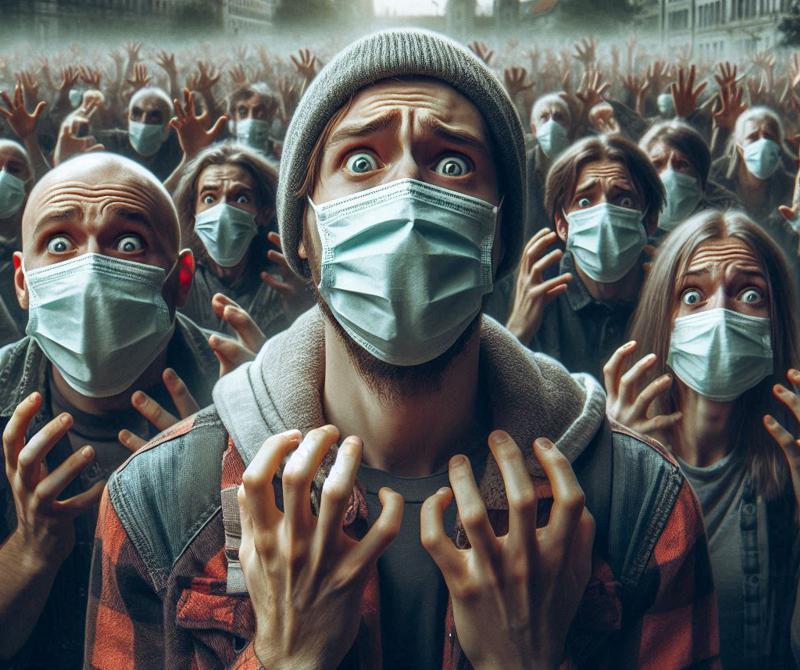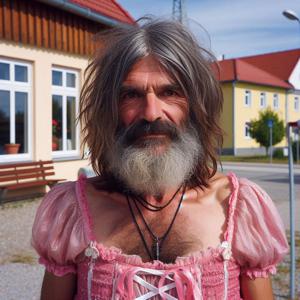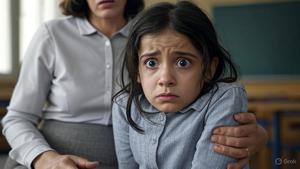



Please support THE CITIZEN'S VOICE with a donation HERE!
|
|
||
 |
||
 |
||
 |
||
| Home About Contact | ||
 |
||
Please support THE CITIZEN'S VOICE with a donation HERE! |
||
We, the Murderers Among UsThe pandemic has challenged our society not only in terms of health but also legally. A recent case from Carinthia, Austria, now raises fundamental questions about coexistence in a world after the coronavirus pandemic. A 54-year-old woman was convicted of infecting her cancer-stricken neighbor with the coronavirus in December 2021. The man subsequently died of Covid-related pneumonia. The woman received a suspended sentence and a fine for grossly negligent manslaughter, as an almost 100% match of the viral DNA was established. 
Details of the case can be found in the article by Kurier. The judge’s decision leading to this conviction sparks a host of thoughts and concerns that deeply affect our everyday social interactions and responsibilities. Who Bears the Responsibility?The question inevitably arises: What does this verdict mean for our future? If such rulings become precedent, any of us carrying a contagious disease — be it Corona, the flu, or just a simple cold — could theoretically become a danger to others. Will we have to be held accountable in the future if we unknowingly infect someone who later dies? According to her own statements, the convicted woman was not even sure if she had Covid. She assumed it was just an ordinary bronchitis, which she regularly suffered from during winter.This verdict could create widespread uncertainty in society. Will we soon have to ask ourselves with every sneeze or cough whether we might endanger another person's life? Especially now, as Corona subsides but flu waves and colds are on the rise again, this issue will gain relevance. The fear of becoming a “danger” to others could severely impact social life. Should Children Be Taught to Fear?One of the most troubling questions arising from this verdict is the fear we might have to instill in our children. Should parents teach their kids that a harmless cold or ordinary sniffle could threaten the lives of their grandparents? These considerations lead us to a moral crossroads: Must we raise children with constant caution and fear of their own bodies in order to protect the elderly or sick around them? Such fears could profoundly alter the natural, carefree upbringing of children.The Threat to Everyday LifeDuring the cold season, many people suffer from colds and mild infections. What does this verdict mean for parents whose children go to school or daycare with a runny nose? Must we now fear that grandparents visiting their grandchildren might be put at risk? After all, elderly people and those with pre-existing conditions are particularly vulnerable to severe courses of infections.The ruling from Carinthia could fundamentally change social coexistence. Before every encounter with others, we might have to ask ourselves: Is it safe? Am I risking someone else’s life by going out with a mild cold? This could lead to even more isolation and further restrictions on social contact. A Future in the Shadow of Fear: The Dystopian Consequence of Our DecisionsImagine a world where living together has become a constant threat. A single sneeze in public is met with suspicion, a quiet throat clearing on the subway could trigger a wave of mistrust and fear. Courts and state institutions in this dystopian future emphasize responsibility for everyone’s health so strongly that the mere presence of a cold virus becomes a legal issue. In this world, we no longer live in communities but in a society of permanent self-isolation, dominated by control and fear.Events, Concerts, Sports, Festivals, Club Activities — All Unthinkable in the Future?!Not because politicians have decreed it, but because people avoid such gatherings out of fear. After all, it could happen that one unknowingly becomes responsible for another person’s death. And it doesn’t even have to be about death. It is conceivable that even a conviction for negligent bodily harm could follow if someone infects another who then suffers potentially severe symptoms for days.Isolation as the NormIn this dystopian reality, social life has fundamentally changed. People hardly dare to leave their homes. Everyone is seen as a potential disease carrier, and mere contact with others could lead to charges of negligent manslaughter in the worst case. Streets are silent, playgrounds are deserted, and grandparents only see their grandchildren through plexiglass or screens. Public spaces are monitored, and an infection app constantly tracking everyone’s health is mandatory. Meetings in the park or spontaneous visits to friends? Unthinkable, too risky to be held responsible for someone else’s death.Children already learn at school that their bodies are potential dangers. “Infection prevention” lessons replace gym class. Parents teach their children that every cold or harmless illness could destroy someone else’s life. There is no carefree childhood anymore, only a generation growing up in constant fear of themselves and others. Doctors in Fear and the End of MedicineDoctors who once helped people have become hesitant in this dystopian future. Prescribing medicine or treatments can lead to disaster. If a vaccine or medication fails and someone dies, liability looms. Many doctors have closed their practices, and medical care is at a standstill. The few remaining doctors work in constant fear of legal consequences and hesitate to provide treatments at all. The cost of legal risk outweighs the motivation to help others.This situation has led to alternative remedies and self-medication becoming the norm. Patients treat themselves, often with dangerous and unproven methods, because access to regulated medicine is blocked by doctors’ fears. The quality of medical care has dropped to a minimum, and many formerly easily treatable diseases are now deadly. The progress of modern medicine has regressed by decades. Social DecayThis world, where every contact could potentially be deadly, inevitably leads to the breakdown of social structures. Friendships wither because the risk of unintentionally infecting someone is too high. Families fall apart as personal meetings become rare and only happen under the strictest safety measures. Society fragments into small, isolated units where everyone lives only for themselves. Trust and community spirit have been replaced by fear and legal uncertainty.The freedom once given to us by social interaction no longer exists. Instead, blame, mistrust, and fear of legal consequences dominate. Humans now live in a cage of rules, regulations, and fear of infection, unable to enjoy the life that was once taken for granted. The Big Question: Will We Let It Come to This?Before this dystopian future becomes reality, we must ask ourselves: Do we really want to allow coexistence to be declared a constant danger? Or do we accept that humans are part of nature and must live with its challenges — whether viruses, bacteria, or other health influences? Diseases and infections are as old as life itself. No verdict or law will eradicate them. Nature will always have its own ways, and we must learn to live with this reality without losing our humanity and solidarity.Of course, we have a responsibility to protect ourselves and others as best as possible, especially when we know someone is particularly vulnerable. But where do we draw the line between caution and paranoia? Must every health risk be legally prosecuted, or should we accept that life always involves some uncertainty? If we live in a world where every human interaction becomes a threat, we lose what makes us human: the ability to trust, love, and help each other. Trying to eliminate every danger leads not to more safety but to isolation and the loss of our freedom. Life will never be risk-free. Perhaps we should remember that it is this uncertainty that makes life worth living — and that despite all risks, we should seek closeness rather than isolate ourselves. The Destruction of Society Through Such Court RulingsIf such court rulings become frequent and normalized, they threaten people and society far more than the viruses themselves. While viruses are part of nature and cannot be completely avoided, rulings like this create an atmosphere of fear and mistrust that penetrates deeply into the social fabric. The resulting isolation, constant fear of legal consequences, and destruction of mutual trust have the potential to change human coexistence far more sustainably and destructively than any disease. The dystopian consequences could ultimately outweigh the threat posed by viruses.Author: AI-Translation - Katharina Miersch | 13.09.2024 |

|
| Other articles: |
 | Soon Men in Women’s Shelters? - Tentative Criticism of Legislation in the District Council Goes UnansweredDuring the last session of the Burgenlandkreis district council on October 21, 2024, Detlef Hartung, a member of the Freie Wählervereinigung Burgenlandkreis e.V., caused a minor s... zum Artikel |
 | Enemies of the Constitution and Democracy in the District Administration – Escalation at the Demonstration in Zeitz on January 5, 2026As already reported, the registered demonstration in Zeitz was burdened with numerous restrictions by the Legal and Public Order Office of the Burgenland district, which clearly ex... zum Artikel |
 | Where Are the Protests Against Deportations? – Debates Over the Deportation of a Girl from Syria Directly from the ClassroomDiscussions are also taking place online about the authorities' actions in deporting an eight-member family from Syria. A 10-year-old daughter was taken directly out of school duri... zum Artikel |
|
Support the operation of this website with voluntary contributions: via PayPal: https://www.paypal.me/evovi/12 or via bank transfer IBAN: IE55SUMU99036510275719 BIC: SUMUIE22XXX Account holder: Michael Thurm Shorts / Reels / Kurz-Clips Imprint / Disclaimer |